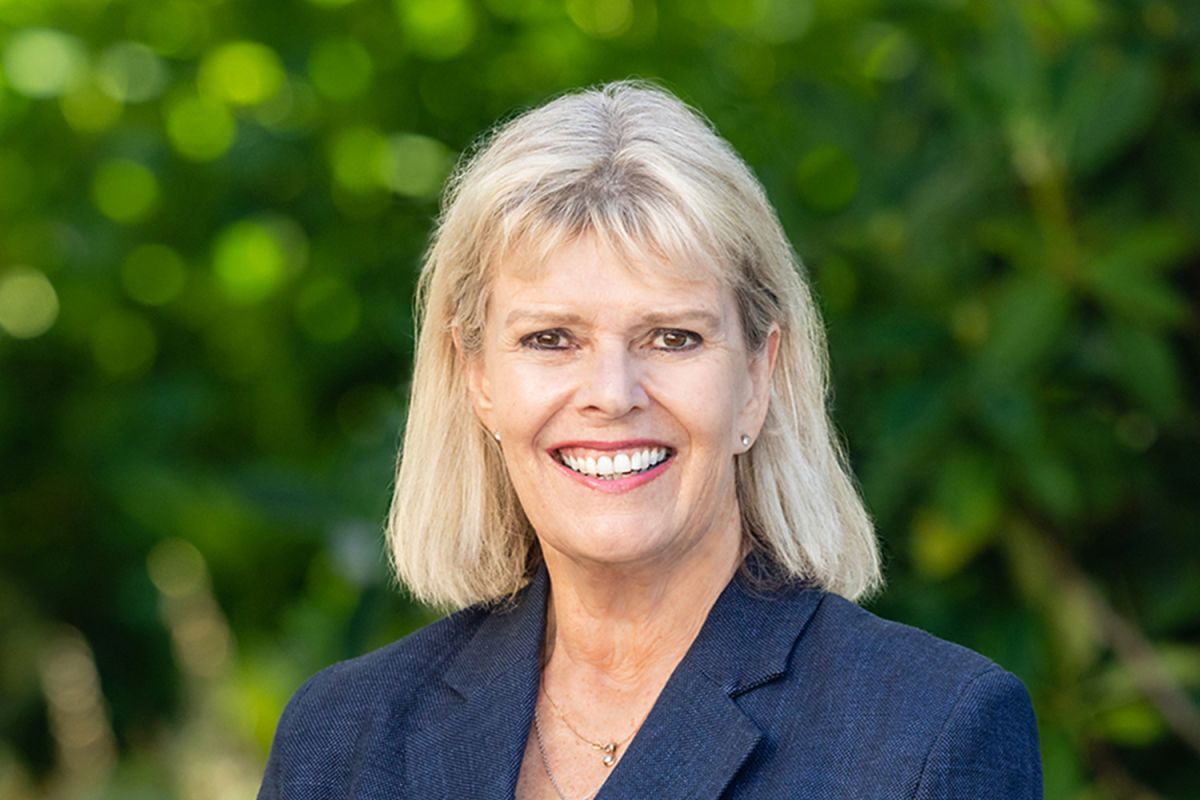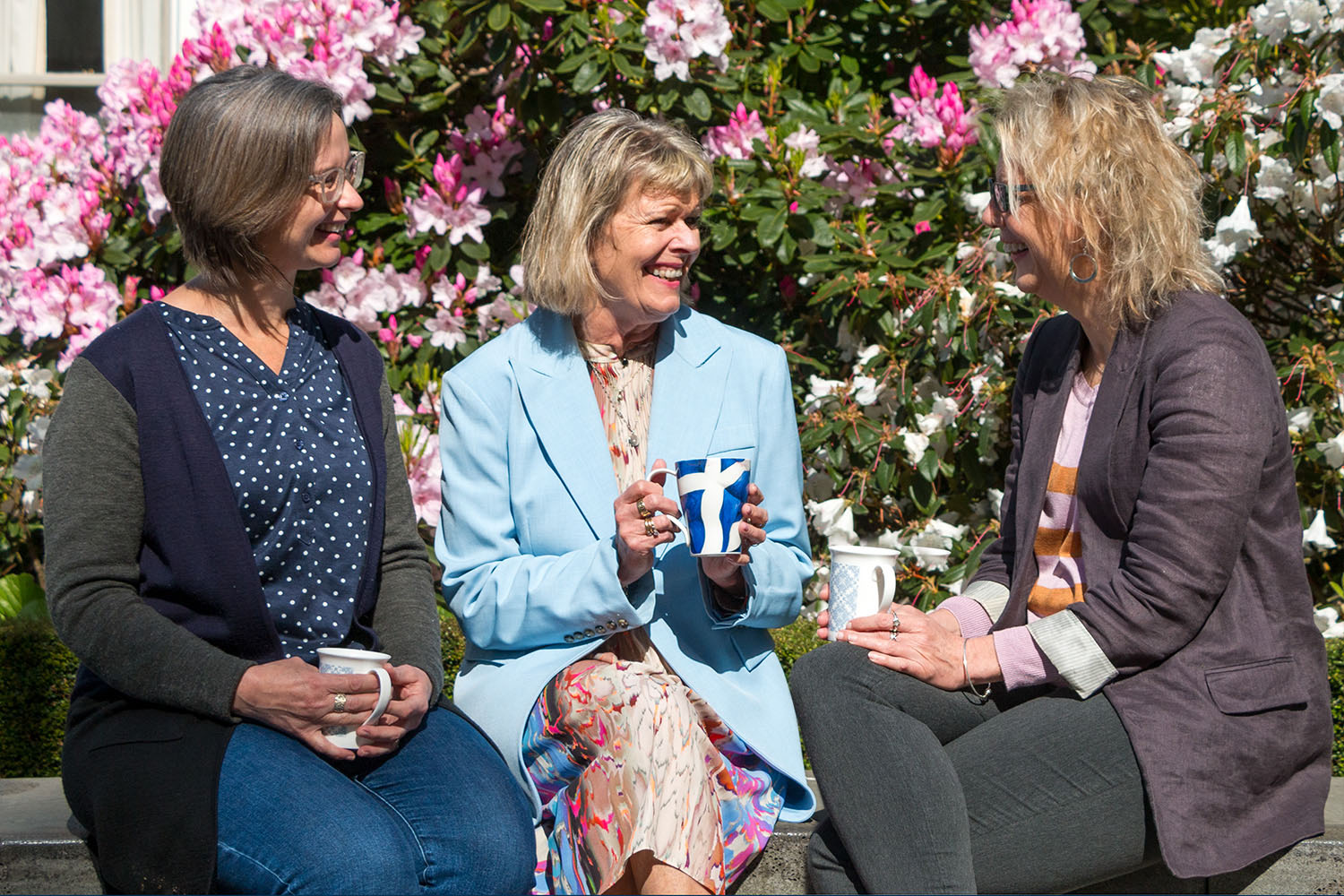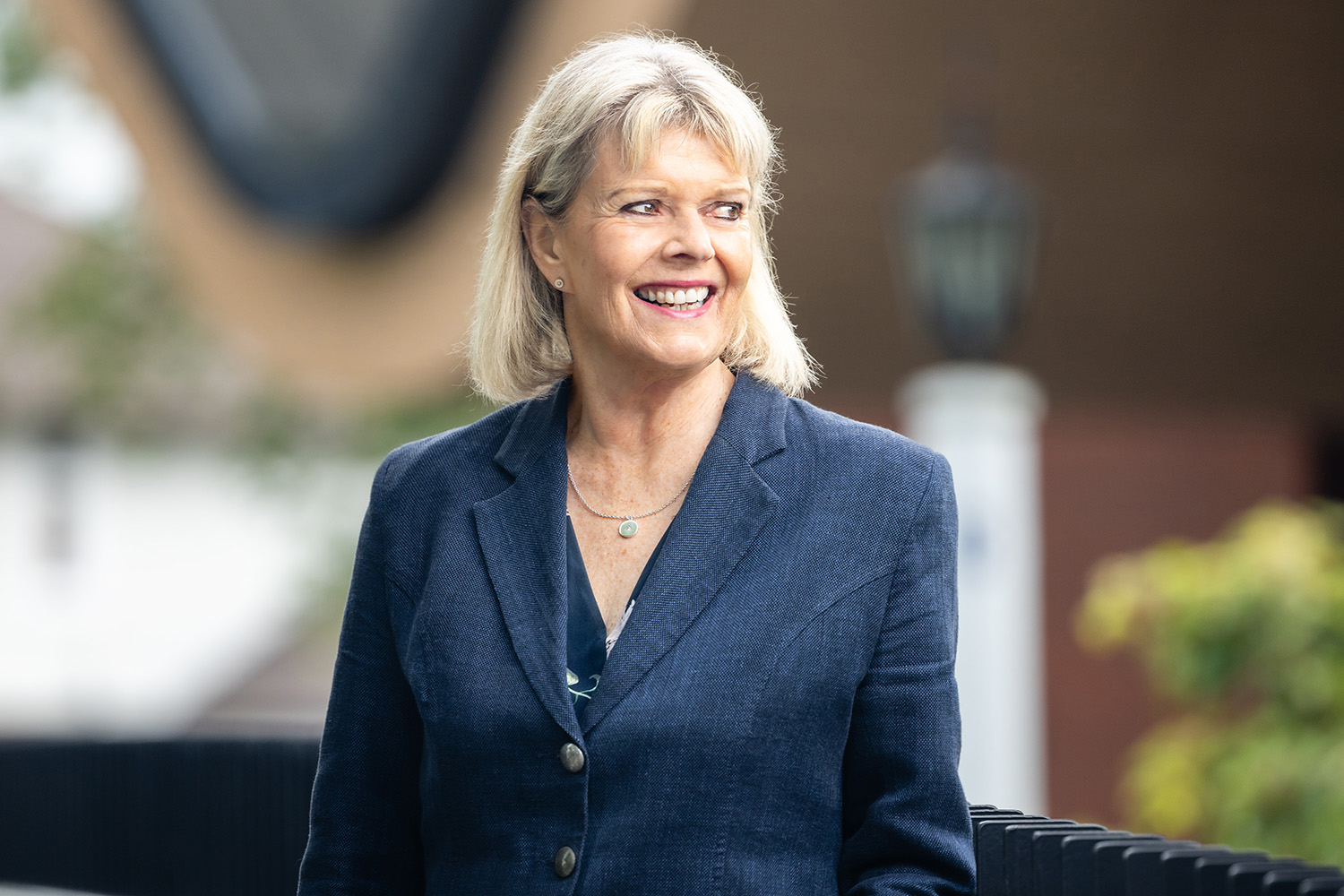From the Rector - Final reflections from Christine Leighton
5 December 2024

REGULUS ADDRESS // ISSUE 3 // NOVEMBER 2024
There have been many defining moments in the 107-year history of St Andrew’s College. As each Rector has influenced a chapter in our collective story, many wonderful people and events have shaped who we are today.
The last seven years, post our Centenary in 2017, have been significant for the College as we have imagined how we wanted to begin our second century. In this time, through our new Strategic Plan, Framing our Future, we have deliberately embraced four key concepts, supported by our five College values: Truth, Excellence, Faith, Creativity, and Inclusivity. These have driven our most recent strategy – to be a community:
• of high performance educational practice;
• that values caring for others;
• that balances tradition with creativity and innovation;
• which equips students with the roots and wings to flourish in an ever-changing world.
The last 21 editions of Regulus over these seven years have been full of stories which have captured the innovations, initiatives, and successes over this time. I must here acknowledge and thank our talented Regulus writer, Jo Bailey, for the way she has brought these stories to life for our readers.
Education has always been a changing landscape. I recall, as we approached the end of the 1990s, the focus was on 21st century learning and the digital revolution which was predicted to transform the way students learn and how schools function. The following 24 years have been influenced by the effect of digital technologies, social media and screentime on children and adolescents, experiments with more fluid and collaborative teaching spaces, the debate about the place of knowledge, critical thinking and inquiry for learners, and the role of teachers as guiders and mentors rather than authoritarian figures who control the learning process and classroom discipline.
The challenge for all schools over this time has been to strike the right balance between traditional methods and innovative approaches. These innovations have included blended learning approaches, project-based learning, digital citizenship education, and focus on the soft skills of communication, teamwork, problem-solving, and conflict resolution. Also widely recognised is the need to equip students with effective well-being strategies in order to develop the resilience and character strengths to flourish not only at, but in their lives beyond school.
At St Andrew’s, our strategic response over the last six years, has led us to a good place from which to take the next steps for ‘Gen Z’ students currently in our Secondary School and ‘Gen Alpha’ who will come after them.
After the last 17 years of working with and following the progress of so many young people at St Andrew’s, I am leaving with a deep and unshakeable belief in their ability to navigate a positive way forward in our ever increasingly complex modern world. Our role as teachers and leaders in our schools is to know and appreciate the young people in front of us and use our wisdom and their voice to engender a sense of purpose and hope for their future. This is now in the hands of others, in whom I have the utmost confidence. I am grateful for the opportunity I have been given to make a contribution to this St Andrew’s College educational landscape for my chapter, 2007–2024.
 Mā te whakarongo, ka mōhio
Mā te whakarongo, ka mōhio
Through listening comes knowledge
Mā te mōhio, ka mārama
Through knowledge comes understanding
Mā te mārama, ka mātau
Through understanding comes wisdom
Mā te mātau, ka ora
Through wisdom comes well-being
Christine Leighton
Rector


I was delighted to present two Rector’s Medals recently. The first was to Olivia Brett (OC 2019) to recognise her magnificent success as a member of the gold medal winning K4 500 team at the Paris Olympics. Olivia’s address to Years 5–10 students in Chapel was inspiring for us all. The second was awarded to Year 13 student, Sea-am Thompson, in recognition of his scholarship to Magdalen College, Oxford University as an organ scholar. Sea-am has played regularly for services in the Centennial Chapel as well as being a lead violinist and lead of the St Andrew’s orchestra this year.
As Rector Christine Leighton prepares to retire from her remarkable 17-year tenure as Rector of St Andrew’s College, we asked her to reflect on her role one last time.
What are the most stand out moments for you over your tenure?
St Andrew’s is such a busy place, and during the past 17 years there have been many wonderful and joyous moments, times of celebration and fulfilment, and positive interactions with people in our community. There is one momentous occasion which does stand out – our St Andrew’s College Centenary in 2017. It was two years of constant focus, work, and creativity to deliver on the community’s expectations for such an important event. I have enormous gratitude for the team who worked alongside me for this wonderful community celebration. I look back and wonder how we managed it!
You say the years from 2016–2019 marked a significant point in the College’s history, can you explain why?
A key focus for the Centenary was to have our campus rebuilt to the best possible post-earthquake standard. The crowning glory was the opening of our beautiful Centennial Chapel in 2016, which felt like a real turning point in terms of recovery. After the 2017 Centenary year, we consulted extensively with our community and launched the Strategic Plan in 2019. In this we imagined what the next five years would bring as we started a new chapter in St Andrew’s College history.
The campus has undergone an extraordinary transformation since you became Rector in 2007, can you tell us about that?
The campus is unrecognisable from when I started 17 years ago, largely due to the earthquakes, which although a dreadful time and enormously challenging, also gave us the opportunity to reimagine the campus. Through deliberate planning and execution, I’m proud of the visually appealing, modern, calm space which has been created for our students to learn, socialise, and relax in, as well as enjoying an environment which supports any activity they wish to undertake. Leading the community consultation and design phase of the Centennial Chapel was terrifying. However, the result which brings so much pleasure to many is very satisfying.
How to you define success in your role as Rector?
Personal success for me has been the ability to create an Executive Team and Senior Leadership Group at St Andrew’s who I believe are exceptional in talent and character. We use our collective strengths to constantly strive for continuous improvement, something we can only do as a team. Strong respectful relationships are at the heart of every successful school. These must extend to students, staff, parents, Old Collegians, Board members, and colleagues in education. Being interested, visible, and highly engaged in all that is going on is also critical to the success of a principal.
What are some of the challenges of the role?
Providing a world-class education for every student in a consistently positive culture, where everyone feels they belong, is not easy to sustain. An independent school must also function as a successful business to remain relevant, thrive, and deliver upon stakeholder expectations. Just as in any business, the immediate needs and wishes of students, staff, parents, and community must be balanced against future financial sustainability. It is also a constant balancing act between maintaining traditions and areas of strength while making space for innovation and new projects.
What are some of the things you have enjoyed most about being Rector?
Two of the things I have particularly enjoyed are the relationships I’ve built with students, parents, and Old Collegians; along with communications with the community, whether I’m writing articles, sending information out through newsletters, or speaking at assemblies or events. Telling the stories of St Andrew’s has been a significant part of my role. I also love the challenge of planning and delivering strategy through dynamic process. I find it very satisfying to measure achievements against deliberate goals we’ve set as an organisation.
What are some of the personal qualities you have brought to the Rector’s role?
I have strong intuition and very good radar. I’m always listening, looking, reflecting, and noticing. I’ve learnt how to constantly monitor situations while at the same time enjoying the moment. I do feel fortunate being a ‘glass-half full’ person who looks forward to every day, anticipating it will be a good one!
You’ve always been a great supporter of students in all their sports, cultural, and academic pursuits, and there have been many significant successes. What is the secret to this?
Celebrating the success and achievements of our students is definitely one of the highlights of my role, both on a personal and professional level. Student success is critical to the success of our school, and it comes in many forms. Success is also part of a broader strategy and vision of St Andrew’s, ensuring we have the support systems in place to allow our students’ talents to flourish. It is like a perfect storm when lots of wonderful factors come together, and something magical happens.
Are there any student successes over your time at St Andrew’s which really stand out to you?
Winning the Gillette Cup in cricket, the Maadi Cup in rowing, and the UC Cup in rugby are some of my personal highlights, along with the national titles won by mixed tennis and mixed touch, and seeing the incredible rise of girls’ sport at St Andrew’s over the last few years with Girls’ football, basketball, futsal, hockey, netball, and volleyball teams all excelling at a regional and national level.
Similarly, our students competing in cultural and academic competitions have had significant success. Standout national achievements include chamber group, Vich Perfect, winning the national NZCT Chamber Music Competition in 2021, Grace Lawrence, Head Girl 2022, winning the Play It Strange national songwriting competition, and Chantelle Xiong (Year 13) winning the 2024 National Schools’ Poetry Award. And of course, in 2013 the Pipe Band won the Juvenile World Championships in Glasgow, which was a massive celebration. The College’s most outstanding academic achievement was Luke Zhu, Corin Simcock, Tom Edwards and Toby Harvie’s (OC 2022) global victory in the International Mathematical Modeling Challenge, with students achieving highly in many other national and international competitions. It is also quite incredible that in the last six years St Andrew’s students have achieved 294 NZQA Scholarship awards with 10 at the Outstanding level.
You and husband Gavin and retiring to Wanaka. What are your plans?
I suspect retirement won’t mean stopping, but I haven’t really had time to think about what the future holds.
I would like to think I will be able to use the experience, skills, and attributes I’ve developed along the way to embark on some new opportunities. In the meantime, I’m going to have a rest, read some books, and go for long walks. There is a lot of sacrifice in relationships with family and friends when you have a full-time working career, and I’m looking forward to being able to pay more attention to those parts of my life and personal fulfilment.
How would you sum up your time as Rector of St Andrew’s College?
The word privilege is absolutely at the core of my time here. It’s been such an honour to serve as the tenth Rector with all the challenges and celebrations. When I think of the times of sadness, turmoil, and uncertainty – the earthquakes, mosque shootings, the COVID-19 pandemic, I fully understand the responsibility of leadership. But from these challenges came personal growth, a sense of self-belief, and the discovery of inner strength. I am truly grateful for all the people I have connected with over the last 17 years. I cannot think of a more fulfilling career than working with adolescents and hope that in some small way I have made a positive difference in their lives.

Related Posts


